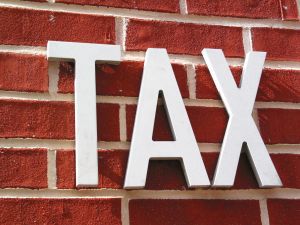Last week we received a question from a reader on what tax is payable upon the sale of gold and silver bullion in New Zealand. They had just been reading an old article of ours: Windfall Tax on Gold | a New Zealand Perspective (which is a separate topic of whether governments might enact a windfall profits tax on precious metals some way down the line).
Specifically the question was:
“Do we already pay sort of a currency fluctuation tax on selling gold in New Zealand?
I had to get out of investing in the US stock market because of idiot foreign investment tax changes here in NZ.
I was told investing in Gold is just like investing in a currency – so you have to pay tax on any gain once you sell – is this right?”
Here’s an expansion of our initial brief response to him:
First up we are not accountants or tax lawyers so whatever we write here is merely intended as a starting point from which to conduct your own research.
It would be fair to say this is somewhat of a grey area. We’ve seen no mention specifically of precious metals in any IRD documentation and also nothing in common law cases about tax on the private resale of precious metals specifically. The only reference on the IRD website to precious metals is with regard to Goods and Services Tax (GST).
GST on gold and silver in New Zealand
“Supply of fine metalsSpecifically there is no GST in New Zealand on gold that is 99.5% pure and silver that is 99.9% pure. Here is the wording directly from the IRD website:
Fine metal is any form of:
- gold with a fineness of not less than 99.5%
- silver with a fineness of not less than 99.9%
- platinum with a fineness of not less than 99%.
The supply of fine metal is an exempt supply, such as any sale of fine metal by a dealer, or anyone importing fine metal.”
http://www.ird.govt.nz/gst/additional-calcs/calc-spec-supplies/calc-exempt/#gsp
So no GST on gold and silver. For more detail on this see: Gold Purity and Silver Purity – A Complete Guide
But what about capital gains tax on gold and silver in New Zealand?
Here’s what the lazy man’s research hub (Wikipedia!) has to say on the topic of capital gains in NZ:
“New Zealand has no general capital gains tax. However income tax may be charged on profits from the sale of personal property and land that was acquired for the purposes of resale.[17] This tax is widely avoided and not usually enforced, perhaps due to the difficulty in proving intent at the time of purchase. However, there have been a few cases of the IRD enforcing the law; in 2004 the government gathered $106.6M checking on property sales from Queenstown, Wanaka and some areas of Auckland.[18]
In a speech delivered on 3 June 2009, then New Zealand Treasury Secretary John Whitehead called for a capital gains tax to be included in reforms to New Zealand’s taxation system.[19] The introduction of a capital gains tax was proposed by the New Zealand Labour Party as an election campaign strategy in the 2011 general election, in which the party received the lowest share of votes in a general election since 1928 and lost 8 seats.[20][21]“
Source: http://en.wikipedia.org/wiki/Capital_gains_tax#New_Zealand
So as wikipedia states a capital gains tax does not specifically exist in New Zealand. This is backed up by the IRD website, where in a section comparing Australia to NZ, under the heading “Capital Gains Tax” for New Zealand it says:
“There is no capital gains tax.”
Source: http://www.ird.govt.nz/yoursituation-bus/bus-aust-nz/tax-basics/comp-inctax/#06
However it’s not quite as simple as that. Elsewhere on the IRD website there is this reference to tax on the sale of shares in New Zealand. Here is the direct quote:
“Holding or disposing of shares
New Zealand does not have a capital gains tax. Therefore, if the shares do not fall into the foreign investment fund (FIF) rules, there will be no tax on the disposal of the shares in New Zealand unless the shares:
are held as part of a profit making activity (ie revenue account property), or
were purchased with the intention of resale.
If the shares do fall into the FIF rules, treatment of dividend income and capital gains, even if the foreign shares form part of a profit making activity, need to be considered under these rules.”
http://www.ird.govt.nz/international/comingleaving/coming/perm/
(Note: These foreign “foreign investment fund rules” would appear to be what our reader was referring to when he said had to get out of investing in the US stock market. This is a tax on the capital value of certain foreign shares which we understand was intended to equate to the withholding tax that is charged on NZ shares dividends. But we digress.)
The 2 key lines from the IRD site are that there will be no tax on the disposal of shares unless they “are held as part of a profit making activity (ie revenue account property), or were purchased with the intention of resale.”
So this “profit making activity” is probably what our reader was referring to in terms of the tax on currency trading. Whereby income tax is charged when someone is a trader – that is buying and selling something as a business to make a profit. Be that of shares, property, currencies (as in a Forex trader), or precious metals or anything else for that matter.
This would seem to be a fairly straight forward situation. We as precious metals dealers pay income tax on profits for selling gold and silver. If you regularly bought and sold precious metals then it would be likely you should pay income tax too.recious metals or anything else for that matter.
The second part of this IRD statement would seem a bit more murky. That is whether you purchased the shares with the intention of resale. From what we’ve seen it’s up to you to prove what you intent was.
This is also discussed specifically in an IRD document on buying and selling property in NZ:
“Do I have to pay tax on property I sell?
It depends on your reason or intention at the time you bought the property.
When deciding whether or not you should pay tax on the profit from the sale of a property, we look at your intention when you bought it.
If you bought the property with the firm intention of selling it when prices rise—to make a gain from the increase in the property’s value—the profit is likely to be taxable.
However, if you bought the property to provide a home for your family, any profit from the eventual resale will most likely not be taxable, unless you have a history of regularly buying and selling properties.
A good test is to ask yourself “what were my reasons for buying this property?”
If one of your reasons for buying a property is to resell it any profits are taxable.
It’s a fact that nearly everyone buying a property will sell it at some stage in the future and most people hope their property will gain in value. However, this alone isn’t enough to make any profits taxable.
It’s only when one of your specific reasons for buying a property is to resell it that any profit you make from the sale is taxable.We need to work out your intentions when you bought property so we can decide whether any profits you make on its sale will be taxable.
Normally, living in a house means that any profits on its eventual sale are likely to be non-taxable, unless you have a history of regularly buying and selling properties.
We make all our decisions on a case-by- case basis.”
http://www.ird.govt.nz/resources/7/1/71288c804ba3d62ab62fbf9ef8e4b077/ir313.pdf
Taxation of gains on gold and silver in NZ is unclear – So what to do?
So as stated earlier there is no specific mention on any IRD documentation of tax treatment on the sale of precious metals in New Zealand. Unlike shares which get discussed directly, and also property where the IRD has a whole guide book on the topic.
Of course just because it isn’t specifically mentioned anywhere doesn’t mean it isn’t necessarily excluded.
It seems likely that with gold and silver it could also come down to your intention when you buy. Was it for the purposes of making a profit to resell or not?

An argument could be made that the only reason to buy gold is to resell it at a profit. Since it has no yield then you must have bought it with the intention to resell at a gain? But many shares also don’t yield anything and from what we’ve seen if you are a long term holder of them there doesn’t seem to be tax to pay on the profits of selling them some years down the line.
But overall it is probably wise to document your reasons for buying gold and silver.
In our case it is to remove some paper money from the banking system where it is at risk in case of a bank failure (see this short video and article on the NZ Reserve Banks Open Bank Resolution (OBR) policy to learn about that) and to maintain purchasing power which is otherwise lost to inflation. We have no set plan to sell and intend it as a form of saving.
Of course we are not accountants or lawyers and so don’t take our word for it. But unfortunately you could get differing answers depending on which lawyers/accountants you ask too!
The IRD seems to have gone after people who have regularly flipped houses for sale – but they are likely much easier tracked (and more numerous) than purchasers of precious metals. This would be backed up by the fact that the IRD has a whole guide book on the topic of taxing property sales.
So we’d imagine precious metals holders would be a fair way down the list to be targeted. As much because it would difficult to know who they are. As we wrote about a week ago (see Privacy: Are purchases of gold and silver in NZ reported?), precious metals transactions do not have to be recorded (yet anyway) in New Zealand.
However we think it prudent to document your reasons for purchasing at the time anyway. It certainly can’t hurt.
Do you have any ideas or experience on how precious metals are treated by the IRD? Show us you’re alive and leave a comment below. Or even just give us your totally unbacked opinion or share a link from elsewhere on the topic!…
If you’d like to know the exact process for selling gold and silver see: Sell Gold & Silver Bullion, Bars or Coins



I agree with your line of arguements. There is a senario which you have not considered. What if you purchased gold overseas. You might not even have been resident at the time!
Also I am confused about the case of Platinum. Pretty sure you have said in the past Platinum is subject to GST. The IRD statement above appears to contradict that. Can you clarify?
Pingback: Gold breaks out | Gold Prices | Gold Investing Guide
I think it would be impossible to have an intention to sell the gold at a profit in the future (if that is the test) unless one could know the NZD price of gold would be higher when selling it.
Do gamblers have to pay CGT on their winnings? Would that be a good analogy?